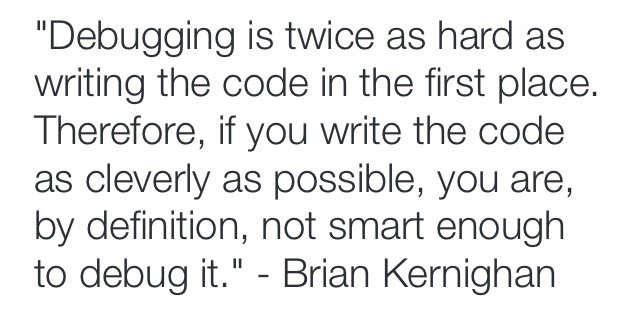|
title: Put the knife down and take a green herb, dude. |
descrip: One feller's views on the state of everyday computer science & its application (and now, OTHER STUFF) who isn't rich enough to shell out for www.myfreakinfirst-andlast-name.com Using 89% of the same design the blog had in 2001. |
|
FOR ENTERTAINMENT PURPOSES ONLY!!!
Back-up your data and, when you bike, always wear white. As an Amazon Associate, I earn from qualifying purchases. Affiliate links in green. |
|
|
x
MarkUpDown is the best Markdown editor for professionals on Windows 10. It includes two-pane live preview, in-app uploads to imgur for image hosting, and MultiMarkdown table support. Features you won't find anywhere else include...
You've wasted more than $15 of your time looking for a great Markdown editor. Stop looking. MarkUpDown is the app you're looking for. Learn more or head over to the 'Store now! |
|
| Thursday, March 24, 2016 | |
So that's a clever saying, I guess, but I really think the take-home lesson is that creating code is at least three different, clearly differentiated skills:
In one, you have the ability to write something that works reasonably well the first time. That's an important skill, but a pretty straightforward and, relatively speaking, common one. The second skillset, creating (and editing) maintainable code, is actually covered by two different abilities almost entirely that are too often conflated. One is the ability to write maintainable code. That's perhaps the toughest skill to find, and it's not one that's easy to find out in a quick interview session, if you're the type of company that likes to give programming questions. Because you can write maintainable code a few ways, but the best way is when you get to refactor what you've got. Write code that works, and get the time to make it code that is maintainable. There are certainly ways to minimize the refactoring by using best practices the first time, and those are habits and skills that you can find in an interview pair programming session. But it's a lot better to find someone who naturally refactors into every more maintainable code than to find someone whose first cut is pretty good. The second half of the second skill [sic] is the coder who can reverse engineer anything. Can you get into the mindset of the person who wrote this code? How long does it take to rethread your head and work with the code in front of you? This reverse engineer is also insanely rare and important, because they're the folks who can inevitably pull your rear out of the fire when you've got code written by that first type of coder, the ones who can write code that works reasonably well the first time, but who might not be the type that writes maintainable code. If that coder is still on your team -- especially if they are good refactorers, in which case you should put them on the task as soon as is efficient most of the time -- great, but seemingly more often, that original coder is gone, and it's the reverse engineer that proves the most clever of all. (In case the image didn't come out because you've got Twitter JavaScript turned off...
posted by ruffin at 3/24/2016 08:07:00 PM |
|
|
| |
|
|
All posts can be accessed here: Just the last year o' posts: |
|||||||||||||||||||||
|
||||||||||||||||||||||
|
|
|
|
About Our Author
 )
)